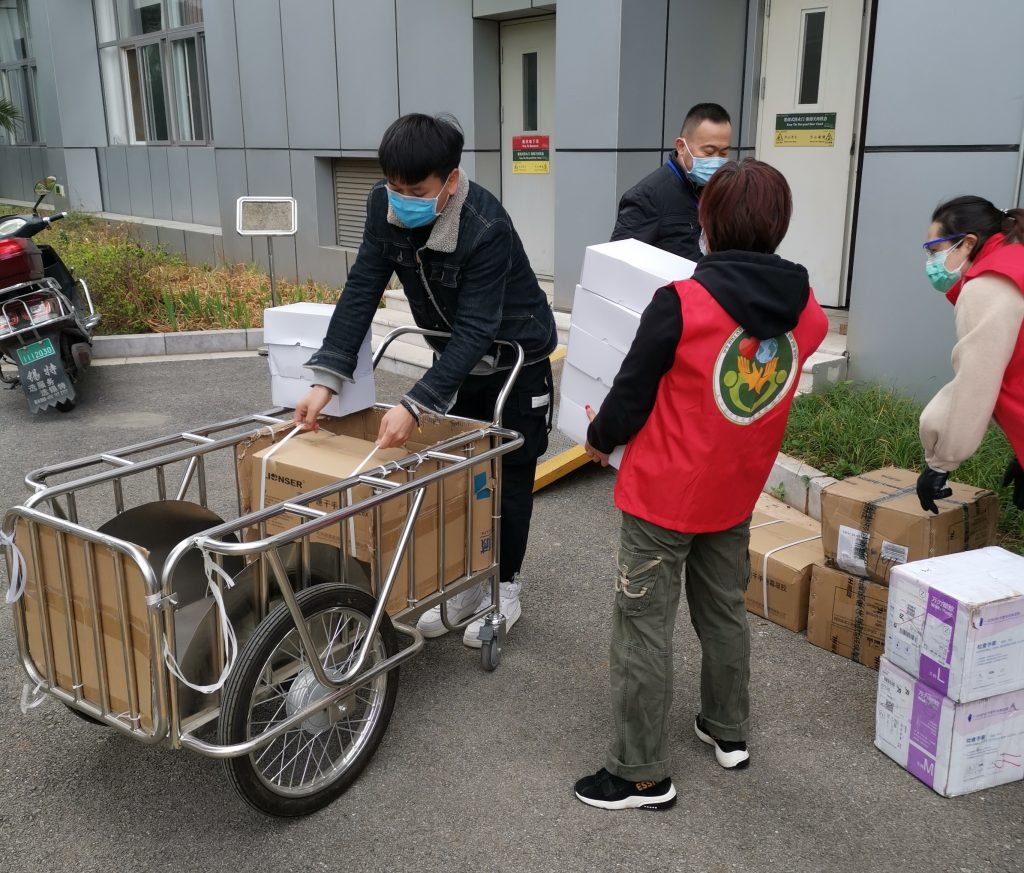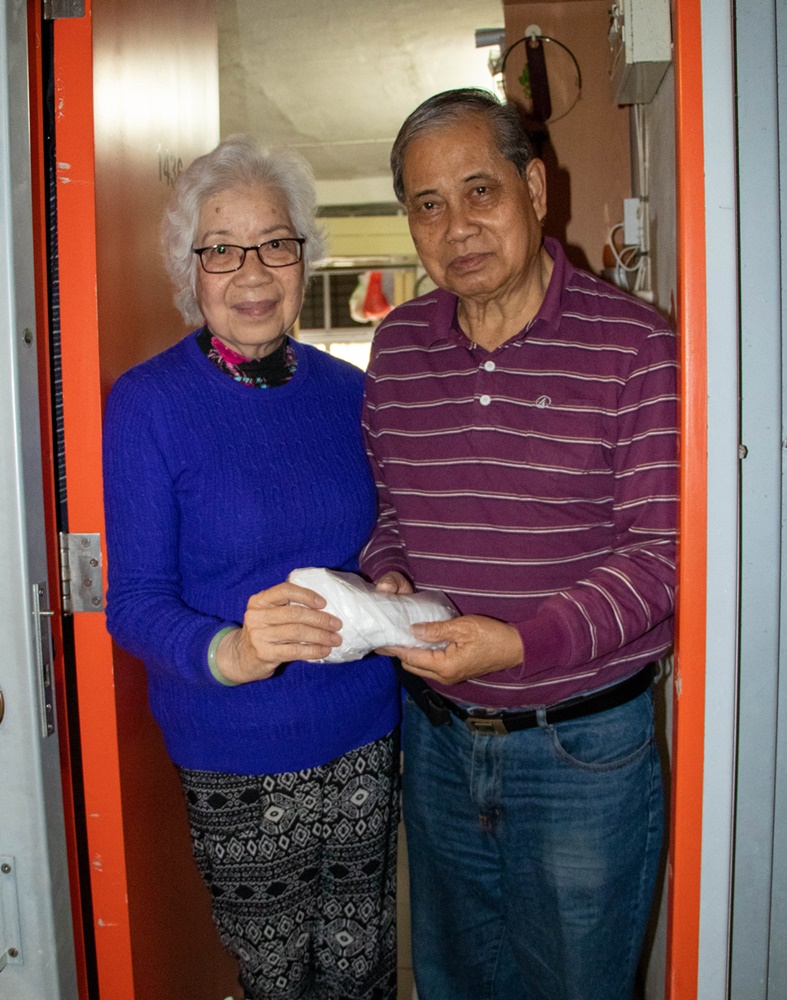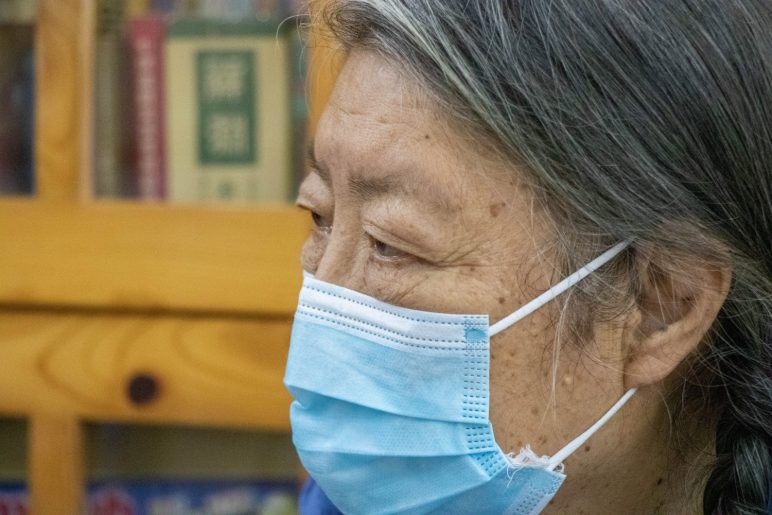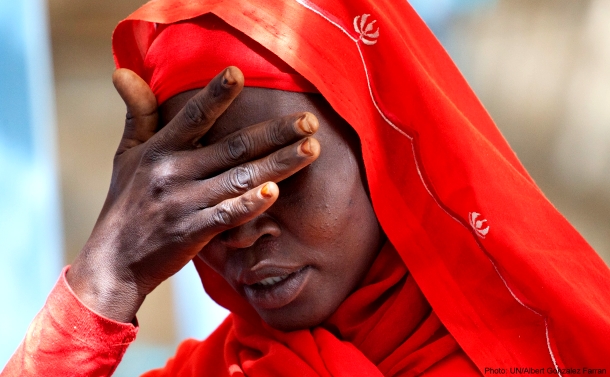Editor’s note: On the Sunday before Lent this year, like many Christians in Hong Kong, I participated in church’s worship by watching the live webcast. The sermon delivered by the preacher impressed me a lot. The preacher said, “The peace we have in our faith does not come by owning, but by remembering the need of the others.” At the time of writing (i.e. the early March), the outbreak of novel coronavirus has spread to many countries across the globe. The situation has been most severe in China, where the epidemic first occurred. In Hong Kong, with the increasing number of infected people, the shortages of surgical masks and hand sanitisers caused a great panic in society. This difficult period may be regarded as a test of our faith. In the face of unknown future, let us go beyond our fear by not only focusing on our personal affairs, but also taking care of the underprivileged people in society and other regions which are adversely affected by the virus. May we always remember our little brothers in battle against the virus.
[“SHARE” APR – JUN 2019 ] FOCUS
Written by: Edward Lai (Senior Communications Officer)
Combating virus in China
In China, the coronavirus has rapidly spread cross the country’s territories. During the early stage of outbreak when anti-virus materials were lacking in China, CEDAR made an allocation of approximately HK$513,000 to provide emergent relief aid in Hubei, Yunnan and Sichuan provinces. Through the local networks of our Christian partners in mainland, we provided medical personnel, disinfection workers, impoverished families, as well as civil servants who were on shift duty to combat the disease, with hygienic and protective supplies. We also mobilised volunteers to care for the poor families and offer living supplies. As the novel coronavirus is highly contagious, our partners strove to keep person-to-person contact to a minimum during distribution. Instead of directly entering the community, they distributed materials to beneficiaries via hospitals, institutions and community units in need.
As of early March, we have distributed 4,600 masks, over 1,400 goggles, 400 sets of protective clothing, 420 anti-bacterial hand sanitisers and 450 kg of disinfectant powder. At the time of publication, some supplies such as masks, gloves and protective clothing were still in transit. We would closely follow up the transition process and ensure that supplies reach the recipients. Please support our work: bit.ly/cedar-china-anti-virus (Chinese only).

With the soaring price of masks in Hong Kong, there were media reports at the end of January that some grassroots reutilised their remaining masks at homes after cleaning them with firewater, as they could not afford purchasing expensive masks. Some parents even reutilised their children’s masks on a regular basis. In view of the foreseeable impacts to the grassroots once the virus spreads in local community, we decided to launch a mask donation campaign called “Love in the Time of COVID-19” after the Lunar New Year holidays. In less than two weeks after initiating the campaign on Facebook (Chinese only), we collected thousands of masks and some disinfectant wet wipes. All of these preventative materials were sent to our partner Christian Concern for the Homeless Association (hereinafter referred to as the CCHA). CCHA then distributed the donated items to the needy they serve, including the homeless and the grassroots living in cubicle apartments and subdivided flats.
Clara Chiu, Head of Partnership Development, who coordinated the donation campaign described, “The idea of this donation campaign comes from the story of five loves and two fish in the Scripture. I hope everyone can start doing by themselves. Each one donates a little bit of masks so that ‘many a mickle makes a muckle’!”.
Shortly after the campaign announcement, the donation was quite well-received. A man phoned to us and said that he ordered some masks and planned to donate half of them; another man negotiated with us and asked how he could do for donation if he was not able to donate a whole box of masks and the masks were not individually packaged. We also met a donor who came to our office and gave two boxes of masks to us.
Clara also donated some masks from what she had in hand personally. She said, “When you see the grassroots wearing the same mask for three consecutive days, their urgent needs will make you smash the fear of not having enough masks in the future. The fear entangles you like a demon, irrespective of the fact that it is not necessarily the case.”

Five Loaves and Two Fish
Thanks God. Our mask donation campaign received an overwhelming public response. CCHA stated on 18th February that they had sufficient masks for distribution in the next two months. Yet, the needs of the poor in Hong Kong were still substantial. After careful consideration, we decided to cooperate with the Centre for Refugees managed by Christian Action, that served the neglected groups of locals, namely the refugees and asylum seekers. As of 26th February, we delivered more than 3,000 masks and some hand sanitisers to the centre.
Apart from initiating mask donation, with the referral from the local media outlet HK01, we transferred 2,500 masks, 250 kg of white rice, and some soda biscuits that were collectively donated by HK01 and a social enterprise to the MEVCC Hing Wah Neighbourhood Elderly Centre in March. On 2nd March, the centre workers, together with the donor, staff of HK01 and CEDAR, distributed the donated items to the elderly they served – the solo-dwelling elders, elderly couples and elders who were in adverse and destitute situations. It was estimated that 250 elders would be benefited.
While the external environment is getting more fragile under the threat of coronavirus, we should continue to help each other and leverage the networks of local organisations to help and protect the community. We sincerely hope that the elderly and other disadvantaged groups will not have to stand in queues early in the morning or even queue up overnight in order to buy masks.
With the aim of encouraging Christians to join hands to assist the poor and the needy, CEDAR and several Christian organisations have issued two joint appeals to all Christian groups and individual believers in Hong Kong respectively (for details, see bottom of this page). The initiating organisations also shared stories of supporting neighbours on the Facebook page “Affection in the Outbreak of Disease: A Testimony of Unity” (translated from the Chinese title: 疫裡有情‧合一見證). In addition, CEDAR and other front-line Christian organisations issued a press release on 18th February to urge the Hong Kong government to respond to the needs of citizens as soon as possible to alleviate their anxiety and distress.
Under the spread of COV-19, everyone’s life suddenly varied, pressing us to rethink our attitude towards life. As said by Suvan Lau Sui Wan, Acting Director of CCHA, our partner organization of mask distribution, “The disease can isolate and alienate people, but also in the epidemic, it can reinforce interdependence and love among individuals.”[2] I look forward to the day we do not need to wear masks, and on that day we reminisce every action with love and every heartfelt greeting.

Joint Appeal to Churches and Believers in Hong Kong
- “7 Things Essential to Combat the Disease. Responding to Your Neighbors’ Needs” (translated from Chinese: 〈抗疫七事不可少.回應鄰舍真需要〉): Issued on 4th February, co-signed by 113 Christian organisations and churches (as of 11st February 11pm)
- “Caring for Your Neighbors, Fighting the Disease Together” (translated from Chinese: 〈關愛鄰舍 同心抗疫〉): Issued on 13th February, co-signed by 230 individuals, in which 100 of them are pastors (as of 28th February 5pm)
[1] For latest news on mask donation, please visit our website: bit.ly/cedar-anti-coronavirus (Chinese only)
[2] Watch the full interview by RTHK’s This Morning on 18th February. Program link: bit.ly/rthk-report (Chinese only)











